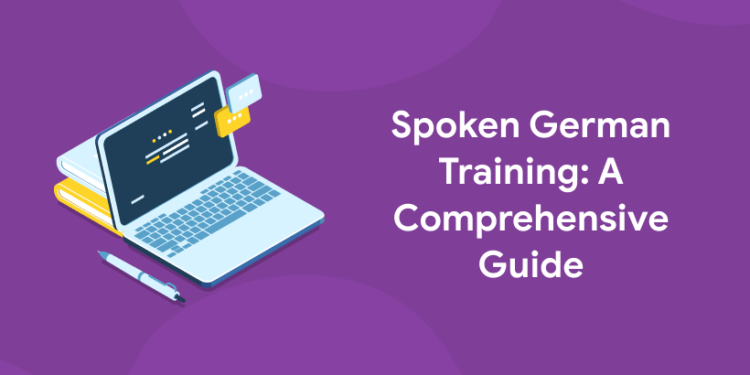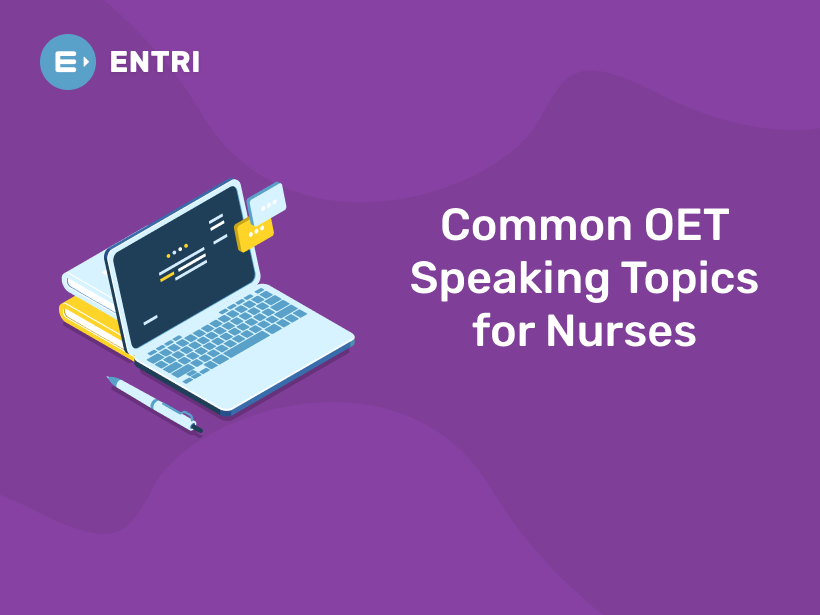Table of Contents
When you search on Google, you can see that some languages are more popular than others in the business world. Knowing certain languages increases your employability. German is one of the most in-demand languages in the business world right now. Let us look into more information before starting our journey of spoken German.
Mastering the Basics: A Comprehensive Guide to Spoken German Training
German is one of the most popular languages in the world and is spoken throughout Europe. We also know that Germany has the highest GDP among European countries and is the hub to which most career seekers are migrating. Besides this, it is the fourth most used language on the internet and the third most important contributor in the research and development field. Even with all these benefits, there are some factors that make people reluctant in choosing German Language learning courses. Let us smash the myths surrounding German learning and find methods that will make this journey easier for you.
Is Learning to Speak German Difficult?
1: How do you say "Good Morning" in German?
Is German a very difficult language to learn? Many sources that you may find say yes. But most of them are just myths that arise from maybe listening to a native German speaker talking. Time and commitment are essential for language learning. And the German language is no different. Having motivation and a well-defined goal is what you need first. But most people would not get into learning German as they are not sure where they should begin. We have given a step-by-step strategy to make your learning path easier. But you have to keep in mind that your mother tongue and languages you already know may a major role in the speed at which you pick up the German language. It will be easier for a person who knows English rather than a person fluent in Mandarin. This is because some similarities are shared by the languages coming under the same group and language family. Languages like English, Dutch and German come under the Germanic group under the Indo-European Language family.
|
German A2 Exercises – Download Free PDF |
||
Speak German Fluently – Your Future Starts Here!
Join our interactive German courses designed for all levels. Gain the skills to communicate effectively and open doors to new cultures and careers.
Start Learning GermanBenefits of Learning German
There are many reasons to learn German from getting additional points in your resume to being able to read your favourite philosopher’s book in the original language rather than a translation or abridged version. Let us take a look at some of these reasons.
- Germany is the second largest exporter in the world. So learning German may be of assistance to you when you are dealing with clients from there. Knowing the language may even lead to forming more and better business relationships. It is also possible to get a job in firms doing business in Germany if you know the language. Germany ranks high in their economy among European countries as well as in the world itself. Besides this, Germany is the headquarters of many international corporations. It is also important to know that Germany has many direct investments in other countries. In all these cases, the knowledge of the German language will give you an edge over other candidates who don’t during the time of recruitment.
- The German language has the most number of native speakers in the European Union. It is also the tenth most commonly spoken language in the world. Besides these, it is a lingua franca of Central as well as Eastern Europe. So if you are a travel lover and plan to visit Europe, don’t be reluctant to attend some German lessons.
- German-speaking countries are very advanced in scientific research and engineering. Many Nobel laureates are from German Universities. If your aspirations lie in this path, then learn German so that the language barrier would not be a hindrance that keeps you from achieving your true potential.
- Many have heard of people learning Japanese so that they could watch Anime without subtitles. Similarly, German could also be learned for media consumption. Many renowned filmmakers of the 20th century have a German origin. Fritz Lang, Rainer Werner Fassbinder, Wim Wenders, Tom Tykwer, Fatih Akin, Lang, Billy Wilder and Ernst Lubitsch are a few examples. This is the same when it comes to the case of books. We could even say that learning German is the gateway to high-class education. Authors such as Marx, Goethe, Nietzsche, Kafka, Thomas Mann, Grass, Brecht, Mozart, Beethoven, Bach, Brahms, Schubert, Schumann, Mahler, Wagner, Schoenberg, Freud, Einstein, Weber, Heisenberg, Hegel, Kant and Heidegge are all well-known authors who wrote and spoke in the German Language.
- It will not be a wild guess to take if I say that most of us already have learned English as our second or third language. This knowledge is something that you can take advantage of. English and German share some words and features. This will make your learning a lot easier. Some words that are similar in English and German languages are listed below.
|
Similar English and German Words |
||
| No. | English | German |
| 1 | House | Haus |
| 2 | Book | Buch |
| 3 | Name | Name |
| 4 | Finger | Finger |
| 5 | Hand | Hand |
| 6 | Mother | Mutter |
| 7 | Swim | Schwimmen |
| 8 | Blue | Blau |
| 9 | Old | Alt |
| 10 | Windy | Windig |
How Long Does it Take to Learn German?
As discussed above, it might be a little difficult if you don’t already speak a language belonging to the Indo-European language family. But even when it is, German can be tricky during the initial phases of learning. So, one should not get discouraged by this. To tell the truth, you are not going to wake up one day morning speaking fluent German. Not getting discouraged and consistency in learning is the key to success. An exact time frame cannot be given for when could a person achieve their needed levels of proficiency. But if you work with motivation while devoting a significant amount of time to language learning daily, you will be able to hold basic conversations with your friends and order from a restaurant menu. But as suggested above, every student’s learning pace may not be the same. You can expect results on par with your previous experience and present hard work.
| German Language Courses | |
| German Language A1 Course Online Coaching | German Language A2 Course |
| German Language B1 Course online Coaching | German Language B2 Course Online Coaching |
German Alphabet
Letters of the German Alphabet and their pronunciation are listed below.
| No. | Alphabet | Pronunciation |
| 1 | A | Ah |
| 2 | B | Beh |
| 3 | C | Tseh |
| 4 | D | Deh |
| 5 | E | Eh |
| 6 | F | Eff |
| 7 | G | Geh |
| 8 | H | Hah |
| 9 | I | Ih |
| 10 | J | Yott |
| 11 | K | Kah |
| 12 | L | Ell |
| 13 | M | Emm |
| 14 | N | Enn |
| 15 | O | Oh |
| 16 | P | Peh |
| 17 | Q | Kuh |
| 18 | R | Err |
| 19 | S | Ess |
| 20 | T | Teh |
| 21 | U | Uh |
| 22 | V | Fau |
| 23 | W | Veh |
| 24 | X | Iks |
| 25 | Y | Ypsilon |
| 26 | Z | Tzett |
Learn German language in your own language! Get free Demo Classes Here!
Speak German Fluently – Your Future Starts Here!
Join our interactive German courses designed for all levels. Gain the skills to communicate effectively and open doors to new cultures and careers.
Start Learning GermanDaily Expressions and Phrases in German
When beginning to learn a language, it is important to understand a few expressions and phrases that are used in daily life. This is a better way to take small steps and keep you motivated. Jumping directly into complicated grammatical rules may overwhelm you in the initial stages of learning. Learning small words and phrases that you can use without much thought will give you a sense of accomplishment and boosts your confidence. This will flame your curiosity and help you to move forward to tougher portions. Some easy daily-use phrases and words in German are listed below. Learn them and practise conversations using these words.
|
Spoken German Expressions and Phrases |
||
| No. | Expression | Meaning |
| 1 | Hallo | Hello |
| 2 | Danke | Thank you |
| 3 | Vielen Dank | Thank you very much |
| 4 | Willkommen | Welcome |
| 5 | Alles Gute zum Geburtstag | Happy birthday |
| 6 | Fröhliche Weihnachten | Merry Christmas |
| 7 | Guten Morgen | Good morning |
| 8 | Guten Abend | Good evening |
| 9 | Ich heiβe | My name is.. |
| 10 | Wie heißen Sie? | What is your name |
| 11 | Wie geht’s? | How are you? |
| 12 | Mir geht’s gut | I’m doing well |
| 13 | Mir geht’s nicht gut | I’m not doing well |
| 14 | Ich komme aus | I’m from |
| 15 | Ich bin hier wegen | I’m here for |
| 16 | Bis später | See you later |
| 17 | Tschüß | Bye |
Step-by-Step Method to Learn Spoken German
A stepwise approach for making your German learning easier is provided below.
- Set a major goal. This could be joining a German university, seeking employment at a German firm, speaking fluently with family members who are German, talking to tourists who arrive at your homestay or fluently talking to locals while visiting Germany. The path of learning has to be moulded according to this aim. This will provide clarity about the areas of language learning one has to focus more on. For example, if you are aiming to be a translator or take up any writing or editing job, then you have to focus more on writing, vocabulary and grammar. Whereas if you are going to be working in hospitality and management you should focus more on fluency in speech.
- Learn the Alphabet first. You can begin this by analysing the difference in the sound of a German letter with its English counterpart. Learning the sounds first will later make pronunciation and word learning easier.
- Learn the most basic words. This will help you form the foundation of all other language skills such as reading, writing, speaking and listening.
- Now slowly step into the world of grammar and other details.
- Watch German movies and TV shows to improve your vocabulary and listening skills. This will also provide you with an understanding of the contexts in which a slang or phrasal expression or idiom could be used. Listening to radio shows and podcasts also has the same effects.
- Watch educational language videos on YouTube. This will help you to understand the grammatical concepts more effectively.
- Use language learning apps to attend quizzes to improve your vocabulary and to practise language skills with different levels of learners. If possible practise your lessons with a native German speaker or a private tutor. As everyone says, practice is needed for perfection.
- Read books, novels, comics, news etc. in the target language i.e. German. This will boost both vocabulary and grammar knowledge.
Ways to Make German Language Learning Easy
There are no shortcuts when it comes to language learning. But there are a few tips for making your learning more efficient and hence less time-consuming.
- Keep yourself motivated with an exciting goal such as wanting to visit a German-speaking nation or aiming to work in a German firm.
- Use all resources you can find to improve your language knowledge. This could be online courses, movies, children’s books, audiobooks, songs, games, radio shows etc. Understanding the culture of a nation speaking a particular language will greatly improve your language.
- Learn slang, idioms and commonly used expressions so that you sound more like a native speaker than a foreigner with some classroom learning.
- Have conversations with native German speakers.
- Practice pronunciation daily.
fly to your dream germany ! learn german language course !
Learn Spoken German with Entri App
Entri is providing classes to learn German from the A1 level. What makes it different from other similar courses is that expert training is provided in your local language. The course Schedule can be made flexible according to the student’s time zones and personal commitments. You can choose the schedule most appropriate for you while doing the registration for this course. Entri app provides all the facilities listed below.
- Live Interactive Classes
- PDF Notes and Assignments
- Local Language Tutor
- Recorded Classes after Live Session
- Goethe Exam Assistance
- Pre-Goethe Mock Test
The levels of proficiency that course provided you are listed below.
| No. | Code | Proficiency | Explanation |
| 1 | A1 | Beginner level | can introduce themselves, understand and use basic expressions, and ask basic questions |
| 2 | A2 | Elementary level | Can understand simple sentences and carry on simple conversations about familiar topics |
| 3 | B1 | Intermediate level | Can understand key points in simple conversations and write simple texts on familiar topics |
| 4 | B2 | Upper intermediate level | Can comprehend complex texts and converse fluently on a variety of topics |
| 5 | C1 | Advanced level | Can comprehend difficult texts, express themselves fluently, and effectively use the language for social and professional purposes. |
| 6 | C2 | Proficient level | Can comprehend almost anything, summarize information, and express themselves precisely and fluently. |
Learn German language in your own language! Get free Demo Classes Here!
Comprehensive Guide to Spoken German Training FAQs
1. What is Goethe Test?
The Goethe-Zertifikat, or Goethe-Test, is a series of German language proficiency exams offered by the Goethe-Institut. These exams are internationally recognized and widely used to assess German language proficiency. The Goethe-Zertifikat examinations are divided into different levels that match up to the Common European Framework of Reference for Languages (CEFR).
2. Which proficiency level of the course should be chosen by an absolute beginner?
A1 Beginner level
| German Language Course in Different Cities |
| German Language Course in Trivandrum |
| German Language Course in Thrissur |
| German Language Course in Kottayam |
| German Language Course in Kochi |
| German Language Course in Calicut |










